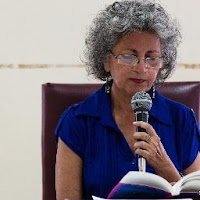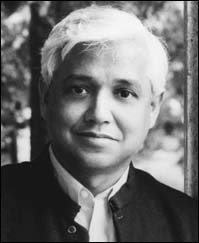
In India, one of the most sought-after degrees in Arts is Bachelor of Arts with English literature major. However, its popularity is largely due to mistaken preconceptions about it rather than understanding what the program actually is. Hence, it is a good idea to look at what is NOT in order to understand what it IS and think about why one should or should not do it. This blog attempts to lay out the widely prevalent misconceptions about BA with English major in the Indian context and provide greater clarity to the students who want to enter the field or find themselves stuck in it.
Misconception 1: It is ‘a Spoken English’ coaching class.
BA with English major will NOT directly provide you the basic conversational English or basic comprehension skills, grammar or compositional skills, in fact, it actually DEMANDS that you ALREADY HAVE these foundational language skills. This gives a distinctive advantage to the students from the English-medium background over those not from the English-medium, though some students from non-English backgrounds are also known to do well in this program. Nonetheless, they have to put in plenty of extra efforts working on their English.
You are unlikely to be a good speaker by reading a Shakespeare play or a Jane Austen novel prescribed in your syllabus. Hence, if you want to do BA with English to do better in IELTS/TOEFL type exams, or impress your crush with your fluent English, this program is unlikely to be of any great help. We need to keep this in mind because as Indians many of us take bachelor’s degree programs to ensure that we don’t remain bachelors for the rest of our lives (which is also not as bad as it is made out to be).
Misconception 2: It is ‘a Written English’ coaching class.
In case you happen to be from an English-medium background, and know that you suck at writing, it would be an error to take up a BA with English major program to fix your writing skills. You are unlikely to be a good content writer or be an expert in writing emails, memos or office presentations by reading that Shakespeare play or a Jane Austen novel (nowadays ChatGPT can do these things for you).
The need for English for the sake of conversation, comprehension and composition is usually addressed in the foundational, vocational, ability enhancement courses and papers that you can take up even WITHOUT doing the BA with English major program. You can take these courses in your college even if you are doing Bachelors of commerce or science or majoring in subjects like sociology, economics, psychology etc.
In case you think you are a poet or novelist, even then, BA with English can hardly be of any great help to you because it is NOT a creative writing program and you can be a good poet or a writer even without doing BA with English (on that note let me point out that neither Shakespeare nor Jane Austen- arguably some of the greatest writers – held college degrees in English literature as these degrees did not exist in those days!). Consequently, due to these mistaken preconceptions of the students, the Shakespeare play, or the Jane Austen novel prescribed in the BA English syllabus in India remains largely unread, and the exams still cleared.
If you are not discouraged enough, here is a third misconception. But this misconception would actually lead us to greater understanding of what it really is.
Misconception 3: It teaches English Literature.
It does NOT teach us English literature (which in very narrow and restricted sense means poems, plays, novels, criticism etc). Some thinkers like Northrop Frye would point out that literature cannot be taught What it actually teaches instead is HOW to STUDY literature in ENGLISH.
By HOW to STUDY, I mean the study-skills, critical thinking skills, and research skills necessary to study literature. We don’t study poems or novels in our class, but learn HOW to analyze them, study them, critically reflect upon them, research them. We pay special attention to language of literature - literature being a linguistic art, we ask questions about distinctive features of literary language, we ask questions about interpretation and classification of literary texts, we ask questions about the historical, ideological and cultural contexts of production and interpretation of these texts. And as any human activity makes sense only in its context, we lay a great emphasis on historical contexts of literature and culture. In short, papers on genres like poetry, drama, fiction and non-fiction, literary history, and literary criticism.
These activities, traditionally belong to the field of literary and cultural criticism and scholarship, and therefore, what you actually sign up for when you sign up for a BA with English program is the introductory course in the field of literary criticism and scholarship in English language.
It should be noted here that what once carried the label of ‘English literature’ has gone beyond the older definitions of the field over the past thirty years: it is no longer merely ‘English’ (it may include substantial amount of cultural material translated into English) and no longer merely ‘literature’ (it may include wider range of cultural narratives: films, graphic novels, or webseries). ‘English Literature’ thus is a field of questions, debates and problems and not a set of texts.
I often begin my first year BA English major classes by asking students why the current class is called a first year BA class and not standard 13 (13 being an unlucky number after all). I try to establish the fact that a bachelor’s degree program in any field provides basic knowledge in a field, a masters program updates our study skills by introducing us to advance knowledge in the field and finally a research degree involves contributing to more specific field by producing knowledge within our broad area of study. In our case, BA with English program, thus would provide us with the basic and introductory knowledge in the field of literary and cultural studies in English, hence it is the beginning of one’s specialization rather than an extension of one’s school education.
In my class, I also point out the woeful colonial history of university English studies in India, how it started first in the colony (India) and only later it was accepted in the UK. I also refer to the infamous Macaulay’s 1835 project of attempting to “form a class” in his words of “who may be interpreters between us and the millions whom we govern, -a class of persons Indian in blood and colour, but English in tastes, in opinions, in morals and in intellect”. The consequence of such a project was the deep-seated belief in inherent cultural and economic superiority of English and ‘backwardness’ of rest of Indian languages. Hence, the so-called choice made by the students when they chose English majors was already determined to a large extent by history (And well, English major is THE class where we can discuss these things!).
Besides, this is the reason why 'Spoken English' classes are so often advertised together with ' Personality Development Classes': we think that only those who can speak in English ' have personality' and those who can't , have no personality at all! While the craze for English in India, thanks to colonialism and globalization, comes close to the craze for sex and social media, it so happens that BA with English major program hardly has any true vocational value in the job market today. This, of course, doesn’t mean it is useless.
Some of my nice teachers would say that studying English literature makes us a good human being, or a good citizen or provides us with critical thinking skills. As far as I know, these are things that schools are supposed to do, just as they are supposed to provide us with the basic communication skills. The condition of the world today reveals that schools have not really succeeded in these matters. A college degree cannot remedy what schools have failed to cure-it is too late. A college is not a rehabilitation center for badly educated people (and that means most of us).
This brings us then to the fundamental question: why study it at all.
You may say you opt for it because you love literature, but then you may love literature (as many people do) even if you are studying commerce or science, you can continue reading novels, stories and poems (mostly the ones you like instead of the ones that are forced upon you) as you keep doing other things for livelihood.
A cynical politician may say that we study it because of our colonial hangover (personally I feel that there are other things that give us better hangovers).
A good answer would be more intellectually complicated. We can say that as modern Indians we are trying to understand ourselves in this rapidly globalizing world. Culturally and historically Indian modernity is deeply influenced by western modernity through colonialism and globalization from past two hundred years and English language and literature have played an extremely crucial role in the process. Therefore, critically studying English language and literature (understood broadly) in India helps us in understanding our ‘own modernity’ and how it is historically different or similar from ‘their modernity’, in short, an act of comparative cultural inquiry.
Hence, using a comparative cultural framework, studying English literature can yield us valuable insights.
And there is a less intellectual, but more interesting reason as well: as Sir Edmund Hillary explained why he climbed Mt. Everest, “because it is there”.
He is also have supposed have told Tenzin Norgay, “We've knocked the bastard off”.

.jpg)























